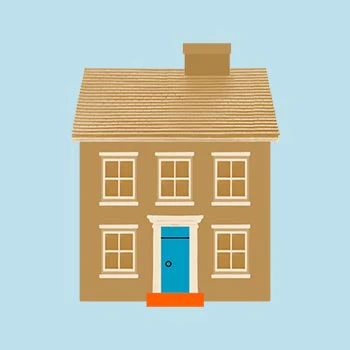Complete Guide to Selling Your House
Everything you need to know about selling your home—from preparation and pricing to marketing, negotiations, and closing. Maximize your sale price and minimize stress with expert strategies.
Selling success factors: A successful home sale depends on proper preparation, strategic pricing, effective marketing, and skilled negotiation. Understanding the process and current market conditions helps you make informed decisions and achieve the best possible outcome.
Market considerations: Real estate markets vary significantly by location and timing. This guide provides general strategies that apply in most markets, but always consult local real estate professionals for market-specific advice.
The Home Selling Process Timeline
Preparation Phase (4-8 weeks before listing)
Research market conditions, interview agents, complete repairs and improvements, declutter and stage your home, and gather necessary documents.
Pricing and Marketing (1-2 weeks)
Complete comparative market analysis (CMA), set listing price, professional photography, create marketing materials, and list on MLS and websites.
Active Marketing (2-8 weeks typical)
Show home to potential buyers, host open houses, review and negotiate offers, handle buyer inspections and appraisals.
Under Contract (4-6 weeks)
Complete buyer's financing, inspections, appraisal, and any required repairs. Prepare for closing and coordinate moving plans.
Closing (1 day)
Final walk-through, sign documents, transfer ownership, receive proceeds, and hand over keys to new owners.
Preparing Your Home for Sale
Essential preparations that add value:
High-Impact Improvements
- Fresh paint: Neutral colors throughout main areas
- Curb appeal: Landscaping, front door, exterior cleaning
- Kitchen updates: Cabinet hardware, countertops, appliances
- Bathroom refresh: Fixtures, vanity, tile, lighting
- Flooring: Clean carpets or refinish hardwood floors
- Lighting: Update fixtures and maximize natural light
Quick Fixes with Big Impact
- Deep cleaning: Professional cleaning of entire home
- Decluttering: Remove personal items and excess furniture
- Minor repairs: Fix leaky faucets, squeaky doors, holes
- Fresh caulk: Bathrooms, kitchen, and window trim
- New hardware: Cabinet pulls, door handles, switch plates
- Staging: Arrange furniture to maximize space and flow
Pricing Your Home Strategically
Key factors that determine your home's value:
- Recent comparable sales: Similar homes sold within 3-6 months in your area
- Current market conditions: Buyer's market vs. seller's market dynamics
- Location factors: School districts, neighborhood amenities, commute times
- Home condition: Age, maintenance, updates, and unique features
- Time of year: Seasonal market variations and local patterns
- Competition: Other homes currently for sale in your price range
Pricing strategies:
| Strategy | When to Use | Pros | Cons |
|---|---|---|---|
| Market Price | Balanced market conditions | Attracts serious buyers, fair value | May take longer to sell |
| Slightly Under Market | Competitive market, quick sale needed | Generates multiple offers, faster sale | May leave money on table |
| Above Market | Unique property, strong seller's market | Maximizes profit if it works | Longer time on market, fewer showings |
| Auction Style | Hot market, highly desirable property | Can drive price above market | Risky, may not reach reserve |
Selling Options: Agent vs. FSBO vs. iBuyer
Real Estate Agent
Commission: 5-6% of sale price
Pros
- Professional expertise
- Marketing resources
- Negotiation skills
- Network of contacts
- Legal protection
Cons
- Commission costs
- Less control over process
- Agent quality varies
- Potential conflicts of interest
For Sale By Owner (FSBO)
Cost: Marketing and legal fees only
Pros
- Save commission costs
- Full control of process
- Direct buyer interaction
- Flexible showing schedule
Cons
- Time-intensive
- Limited marketing reach
- Legal complexities
- Negotiation challenges
- Buyer's agent commission still required
iBuyer (Instant Buyer)
Cost: 5-7% service fees
Pros
- Quick, guaranteed sale
- No showings or staging
- Flexible closing timeline
- Predictable process
Cons
- Below-market offers
- High service fees
- Limited to certain markets
- May require repairs
Marketing Your Home Effectively
Essential marketing components:
Professional Photography
- High-quality interior and exterior photos
- Proper lighting and staging
- Wide-angle shots to show space
- Twilight or golden hour exterior shots
- Consider drone photography for unique properties
Online Presence
- MLS listing with detailed description
- Zillow, Realtor.com, and other major sites
- Social media marketing
- Virtual tours or video walkthroughs
- Agent or company website feature
Writing compelling listing descriptions:
- Lead with the best features: Highlight unique selling points first
- Use descriptive language: "Spacious" instead of "large," "chef's kitchen" instead of "kitchen"
- Include lifestyle benefits: "Perfect for entertaining" or "quiet retreat"
- Mention recent updates: New appliances, renovations, or improvements
- Be honest but positive: Disclose issues while emphasizing potential
Showing Your Home and Open Houses
Pre-showing checklist:
- Clean and declutter all rooms
- Open curtains and blinds for natural light
- Turn on all lights throughout the home
- Set comfortable temperature (68-72°F)
- Play soft background music
- Remove pets and pet odors
- Hide personal items and valuables
- Fresh flowers or subtle air freshener
- Ensure all beds are made
- Clear kitchen counters and sink
Open house best practices:
- Timing: Weekend afternoons typically work best
- Marketing: Advertise 3-5 days in advance
- Security: Remove or secure valuable items
- Information: Provide fact sheets and neighborhood information
- Follow-up: Collect contact information for feedback
Negotiating Offers and Contracts
Evaluating offers beyond price:
Financial Strength
- Pre-approval letter from reputable lender
- Down payment amount (higher is better)
- Type of financing (conventional vs. FHA/VA)
- Proof of funds for down payment and closing
- Debt-to-income ratio of buyer
Contract Terms
- Closing timeline and flexibility
- Inspection contingencies and deadlines
- Appraisal contingency terms
- Earnest money deposit amount
- Requested repairs or credits
Common negotiation points:
- Purchase price: Primary negotiation factor
- Closing costs: Who pays what fees
- Repairs: What seller will fix vs. buyer responsibility
- Appliances and fixtures: What stays with the home
- Closing date: Timing that works for both parties
- Contingencies: Conditions that must be met
Understanding Closing Costs
Typical seller closing costs (6-8% of sale price):
| Cost Category | Typical Amount | Description |
|---|---|---|
| Real Estate Commission | 5-6% of sale price | Split between listing and buyer's agents |
| Title Insurance | 0.5-1% of sale price | Protects buyer and lender from title issues |
| Transfer Taxes | 0.1-3% (varies by location) | State and local government transfer fees |
| Attorney/Escrow Fees | $500-$1,500 | Legal services and closing coordination |
| Outstanding Liens | Variable | Mortgage payoff, HELOC, tax liens |
| Prorated Expenses | Variable | Property taxes, HOA fees, utilities |
Common Selling Mistakes to Avoid
Pricing and Marketing Mistakes
- Overpricing based on emotional attachment
- Poor quality photos or inadequate marketing
- Not staging or preparing the home properly
- Limiting showing availability
- Ignoring online presence and reviews
Negotiation and Process Mistakes
- Rejecting offers too quickly
- Not understanding buyer financing
- Agreeing to unreasonable repair requests
- Poor communication with all parties
- Not having backup plans for deal failures
Tax Implications of Selling Your Home
Capital gains considerations:
- Primary residence exclusion: Up to $250,000 (single) or $500,000 (married) gain exclusion if you lived in the home 2 of the last 5 years
- Taxable gain calculation: Sale price minus purchase price minus improvements minus selling costs
- Depreciation recapture: If you used part of home for business, may owe taxes on depreciation taken
- 1031 exchanges: For investment properties, consider like-kind exchanges to defer taxes
Questions about selling your house
- How long does it typically take to sell a house?
- The average time on market varies by location and market conditions, but typically ranges from 30-60 days. Preparation before listing can take 4-8 weeks, and closing usually takes 30-45 days after accepting an offer.
- Should I make major renovations before selling?
- Focus on high-impact, low-cost improvements like painting, landscaping, and minor repairs. Major renovations rarely return their full cost and can delay your sale. Consult with a real estate agent about which improvements make sense in your market.
- What's the best time of year to sell a house?
- Spring and early summer (March-June) typically see the most buyer activity, but the best time depends on your local market. Consider your personal timeline, market conditions, and competition when deciding when to list.
- How do I price my home competitively?
- Work with a real estate agent to complete a comparative market analysis (CMA) using recent sales of similar homes in your area. Consider current market conditions, your home's unique features, and your timeline for selling.
- Can I sell my house if I owe more than it's worth?
- Yes, but this is called a "short sale" and requires lender approval. You'll need to demonstrate financial hardship and may still owe the difference. Consider all options including loan modification before proceeding.
- What documents do I need to sell my house?
- Essential documents include: deed, mortgage statements, property tax records, HOA documents, warranty information, utility bills, inspection reports, and any renovation permits. Your agent or attorney will provide a complete list.
- How do I handle multiple offers on my house?
- Evaluate offers based on price, terms, buyer qualifications, and timeline. Consider asking for "highest and best" offers, and don't just accept the highest price—the strongest overall offer is often the best choice.
Selling Your Home Successfully
Key to success: Preparation, realistic pricing, effective marketing, and skilled negotiation are the pillars of a successful home sale. Take time to understand your local market, work with experienced professionals, and be flexible while protecting your interests throughout the process.
Important information: Real estate markets vary significantly by location, and selling strategies should be adapted to local conditions. This guide provides general information and should be supplemented with advice from local real estate professionals, attorneys, and tax advisors familiar with your specific situation and market.
Professional Guidance: Consider working with experienced real estate agents, attorneys, tax professionals, and other specialists who understand your local market conditions and legal requirements. The complexity of real estate transactions often justifies professional assistance.
© 2025 CreditVana LLC. All rights reserved.








